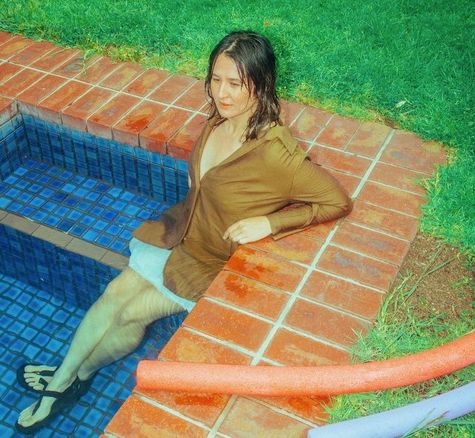
Jess Ribeiro‘s new single, ‘Summer of Love’, is a moment of radiant calm amidst the chaos. Revealing vulnerability and heart in the depths of mourning. Gentle pianos, and sighing strings give way to Ribeiro’s utterly transfixing vocal: piercing, quivering with longing, empathy and pouring forth with love.
The simmering and enveloping instrumentation came courtesy of Jim White’s (Dirty Three, Xylouris White, Cat Power) almost invisible drums, Carrie Webster’s double-threat violin and viola, and piano by Nick Huggins, who also lent his hand to recording the track.
When she sings earnestly: “We need a summer of love like no other, a gate way to good vibes with each other.” As well as being intensely personal this sentiment could also be a prescient plea to humanity as we see images of war on our television screens.
Elegant, reflective and moving, ‘Summer of Love‘ presses pause on the noise and offers a warm embrace.
The music video for ‘Summer of Love’ was filmed and directed by Nick Mckk who is well known for his collaborations with musician Julia Jacklin, RVG and Rolling Blackouts. Nick and Jess made the music video spontaneously after plans changed due to cast members getting sick.
‘Summer of Love’ was first written during the heartbreaking Victorian summer of 2019-2020 at a solar powered shack on the Great Ocean Road down past Gadubanud Country/Apollo Bay, with her friend and musical collaborator Dave Mudie (Courtney Barnett, Super American Eagles). Ribeiro shares, “We used all the solar power trying to record demos, so it ended in us using torches and a candle for the rest of the night as well as being terrified that the feral pigs were going to get us.”
‘Summer of Love’ was originally born as an 80’s pop song recorded with producer John Castle (Vika & Linda, Cub Sport), before a second life as a Velvet Underground-inspired rock number made alongside Mick Harvey (The Birthday Party, Nick Cave & The Bad Seeds). What you hear is its third and final incarnation, and for Australian artist Jess Ribeiro, the song’s true form: capturing the rawness and vulnerability she felt around the reopening of a much-publicised missing person’s case that marked the end of her childhood. Ribeiro shares, “This song has undergone many evolutions but this version suits where I’m at. It’s stripped back, vulnerable, reflective.”
[embedded content]
